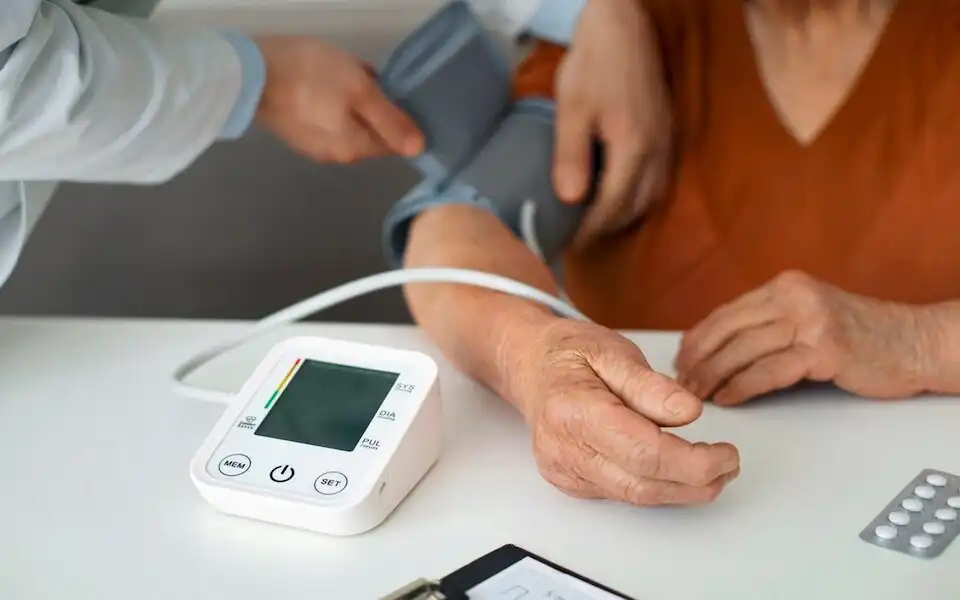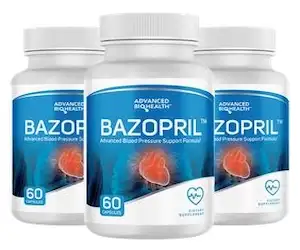High blood pressure, also called hypertension, affects millions of people around the world. People often don’t notice they have it because they don’t have any clear signs. However, it greatly raises the risk of heart disease, stroke, and kidney problems. A lot of people are given medicines to control their blood pressure, but a lot of people also look for natural methods to reduce blood pressure, aiming to avoid side effects or work with their treatment.
Understanding Blood Pressure
Blood pressure is the amount of force that blood is applying to the artery walls as the heart beats. It is written as systolic pressure (when the heart beats) over diastolic pressure (when the heart stops beating). The number should be around 120/80 mm Hg. When results regularly go above 130/80 mm Hg, this is called hypertension.
Genetics, a bad diet, a lazy lifestyle, worry, being overweight, and drinking too much booze are all things that can cause high blood pressure. If you don’t treat high blood pressure, it can cause major health issues like heart attack, stroke, and kidney failure. So, keeping blood pressure under control is very important for long-term health.
Dietary Approaches To Lower Blood Pressure
Changing what you eat is one of the best natural ways to lower your blood pressure. This is exactly what the Dietary Approaches to Stop Hypertension (DASH) plan is meant to do. It tells you to eat foods that are high in potassium, calcium, and magnesium, which help keep your body’s sodium levels in check and relax the walls of your blood vessels.
Some important foods to eat are fresh fruits and veggies, whole grains, nuts and seeds, and lean meats like chicken and fish. Leafy veggies, like kale and spinach, are great sources of potassium. It’s also important to eat less sodium because too much salt makes you retain water, which raises your blood pressure. Many processed and packed foods have salts that are hard to find, so cooking meals at home can help you keep your salt intake in check.
Cutting back on artificial carbs and added sugars also assists you lose weight and lowers your blood pressure. Heart health is also improved by drinking less coffee and switching from sugary drinks to water or green teas.
Physical Activity And Exercise to Reduce Blood Pressure
When you work out regularly, your heart gets stronger. This makes it easier for it to pump blood, which lowers the pressure in your arteries. According to the American Heart Association, people should do at least 150 minutes of moderate-intensity physical exercise or 75 minutes of strong exercise every week.
Walking quickly, riding a bike, swimming, and running are all great aerobic exercises. Strength training twice a week is also good for keeping your blood vessels and digestion fit. Yoga and other flexibility routines can help your blood flow and lower your stress.
Being busy not only lowers blood pressure but also helps you keep your weight in check and feel better. If you have never worked out before, start slowly and find things you enjoy to keep up the routine.
Stress Management Techniques
Stress is an unnoticed cause of high blood pressure. Hormones like adrenaline and cortisol are released by your body when you are worried. These hormones temporarily raise blood pressure. These hormones stay high for a long time when you are under a lot of worry.
Using natural ways to deal with worry is important for keeping blood pressure in check. Mindfulness, meditation, and deep breathing can help calm the nervous system and make you feel more relaxed. Yoga mixes moving your body and controlling your breathing. It has been shown to lower high blood pressure.
It’s also important to get enough peaceful sleep since bad sleep habits raise blood pressure and worry. The purpose for 7 to 8 hours of good sleep each night and to make a relaxing sleeping habit.
Weight Management
This makes high blood pressure more likely because additional weight puts extra stress on the heart and vessels. Even a tiny amount of weight loss can lower blood pressure by a lot. This happens because fat tissue makes chemicals that can make inflammation and blood pressure go up.
A healthy diet and regular exercise are two natural ways to lose weight. Instead of trying popular diets, make changes to your lifestyle that will last, like watching your portions, eating more mindfully, and cutting back on sugary and fatty foods. Writing down what you eat and what you do can assist you become more aware and motivated.
Herbal Remedies And Supplements
A number of natural products have been shown to lower blood pressure, but they should only be used carefully and with the help of a doctor.
- Garlic: Possesses allicin, which may facilitate the relaxation of arterial vessels.
- Hibiscus tea: High in antioxidants and has been found to have modest blood pressure-lowering properties.
- Omega-3 fatty acids: These are found in fish oil and are good for your heart and reduce swelling.
- Coenzyme Q10: Could enhance the function of blood vessels.
Talk to your doctor about vitamins, especially if you are taking medicine, to make sure they don’t mix.
Limiting Alcohol And Quitting Smoking
Blood pressure goes up when you drink booze or smoke. If you drink too much booze, it can raise your blood pressure and make medicines less effective. Maintaining your alcohol intake to a healthy level, up to one drink a day for women and two for men, can help you control your high blood pressure. When you smoke, your blood pressure goes up right away, and your blood vessels get damaged, which raises your risk of heart disease. Giving up smoking is the best natural thing you can do to enhance your heart health.
Hydration And Its Impact On Blood Pressure
Staying wet helps your body keep the right mix of vitamins and fluids, which helps keep your blood pressure healthy. When you’re dehydrated, your blood vessels may narrow, which raises the pressure in your body. Aim to drink at least 8 cups (about 2 liters) of water every day. If you are busy or live in a hot place, you should drink even more.
Monitoring And Regular Checkups
Natural ways work, but they need to be checked on often to see how things are going and if anything changes. Blood pressure monitors for the home are cheap and simple to use. Keeping track of things helps you and your doctor make smart choices. If your blood pressure stays high even after making changes to your lifestyle, you need to see a doctor right away.
Conclusion
Natural ways to control blood pressure include eating well, working out regularly, dealing with stress, keeping your weight in check, and giving up bad habits. Using these tactics can greatly lower the chance of problems linked to high blood pressure. For the best results, always use natural means along with regular doctor advice.
Frequently Asked Questions (FAQs)
1. Can Natural Methods Alone Control High Blood Pressure?
Many people with mild hypertension can lower their blood pressure in natural ways, but some may still need to take medicine.
2. How Long Does It Take To See Results From Lifestyle Changes?
You can see progress in a few weeks, but you have to keep at it to get long-lasting results.
3. Is Salt Really That Bad For Blood Pressure?
Too much salt raises blood pressure by making the body hold on to water, so it’s important to limit it.
4. Can Stress Really Raise Blood Pressure?
Yes, stress does cause hormones to be released that temporarily raise blood pressure. Long-term stress can also lead to problems.
5. Should I Consult My Doctor Before Starting Supplements?
Yes, to ensure safety and avoid drug conflicts, especially if you are already on other medicines.

Gas S. is a health writer who covers metabolic health, longevity science, and functional physiology. He breaks down research into clear, usable takeaways for long-term health and recovery. His work focuses on how the body works, progress tracking, and changes you can stick with. Every article is reviewed independently for accuracy and readability.
- Medical Disclaimer: This content is for education only. It doesn’t diagnose, treat, or replace medical care from a licensed professional. Read our full Medical Disclaimer here.



